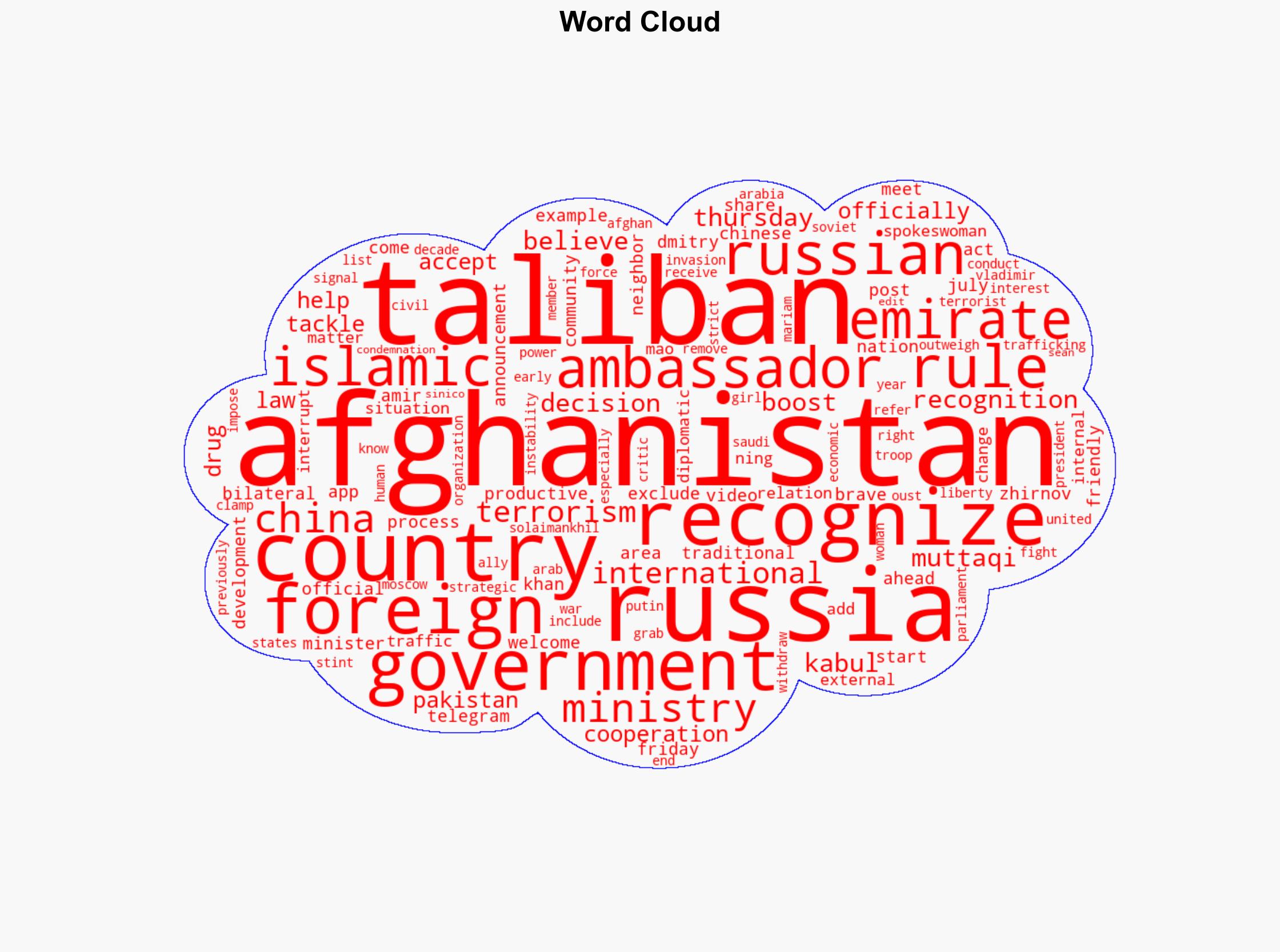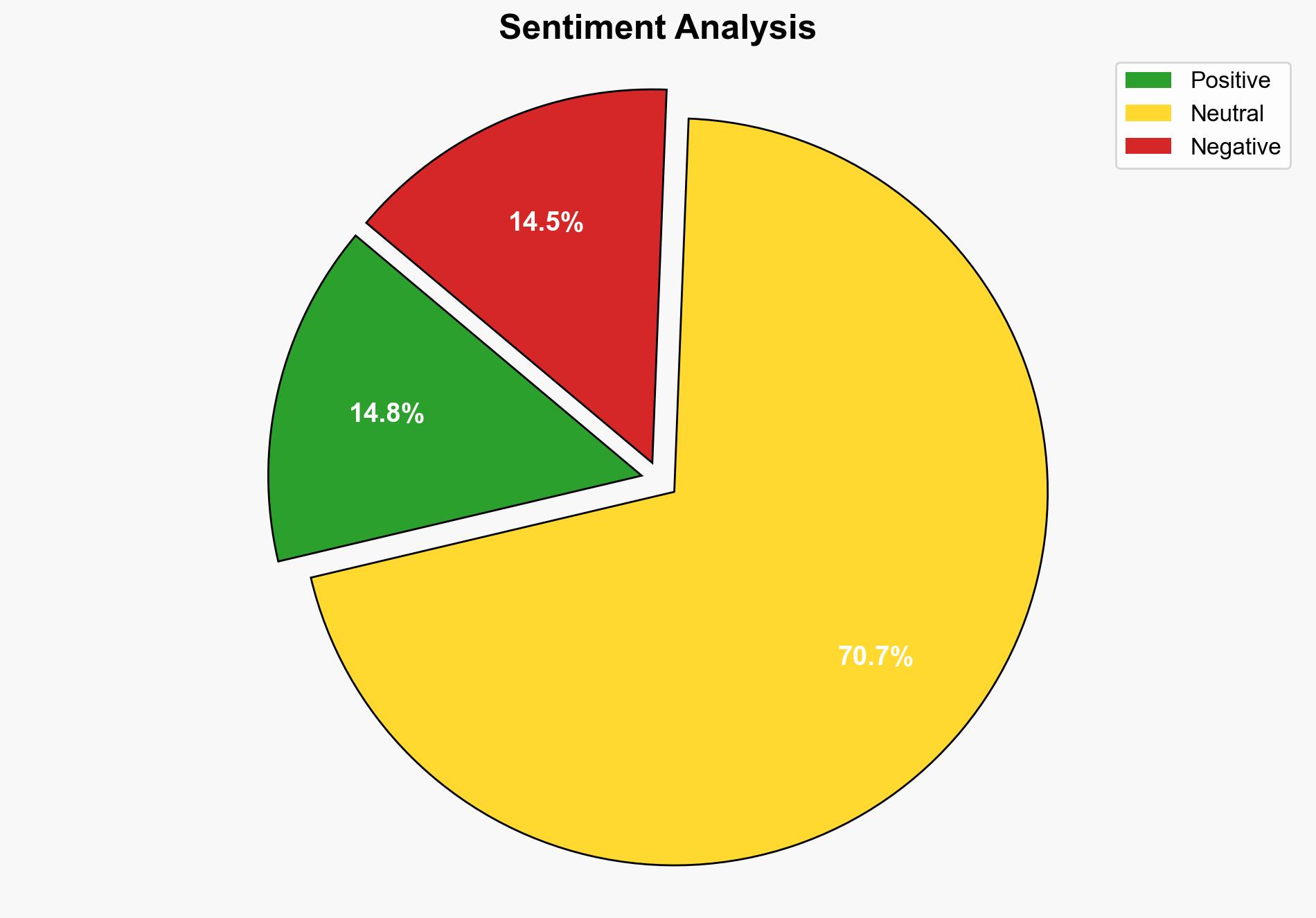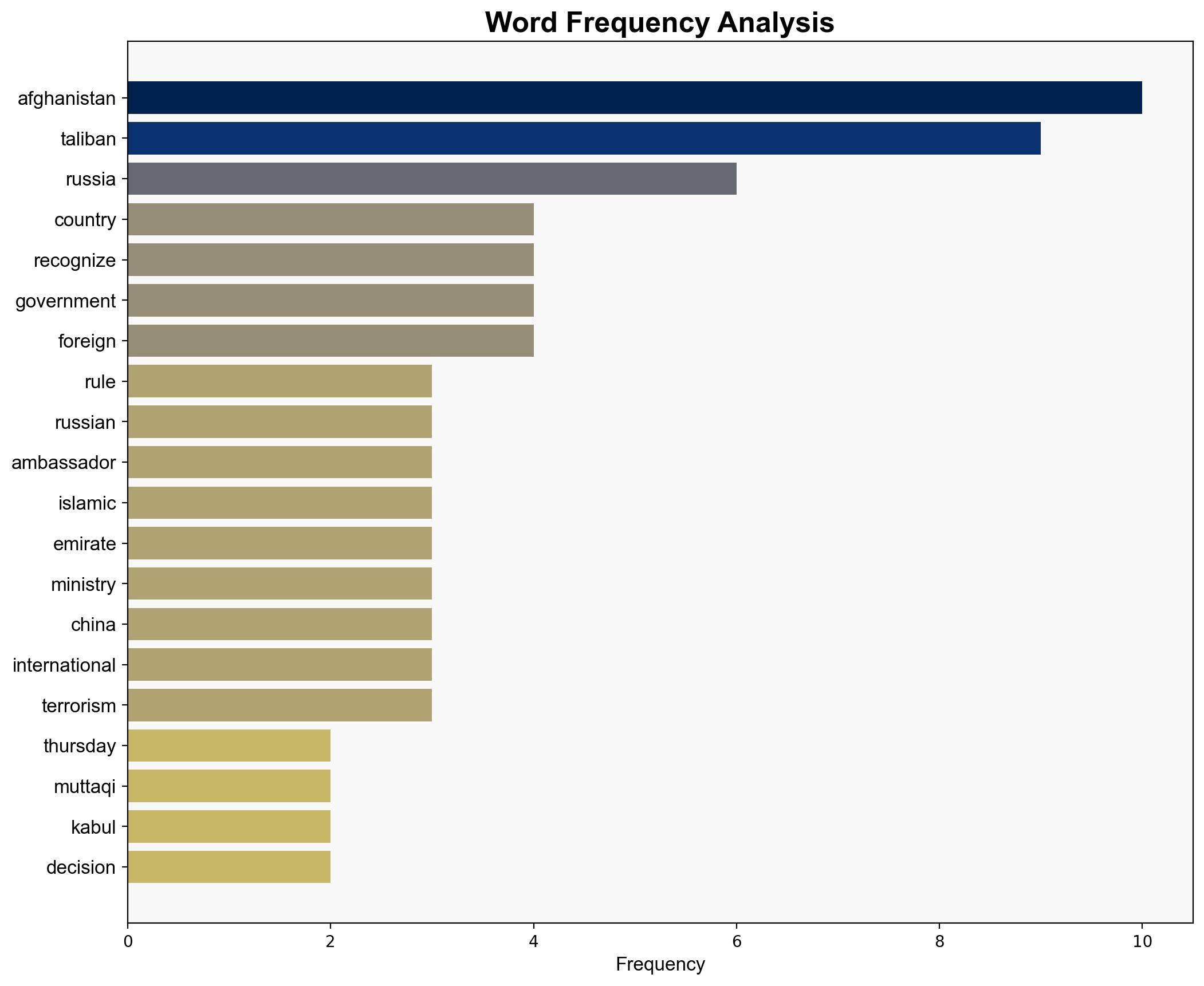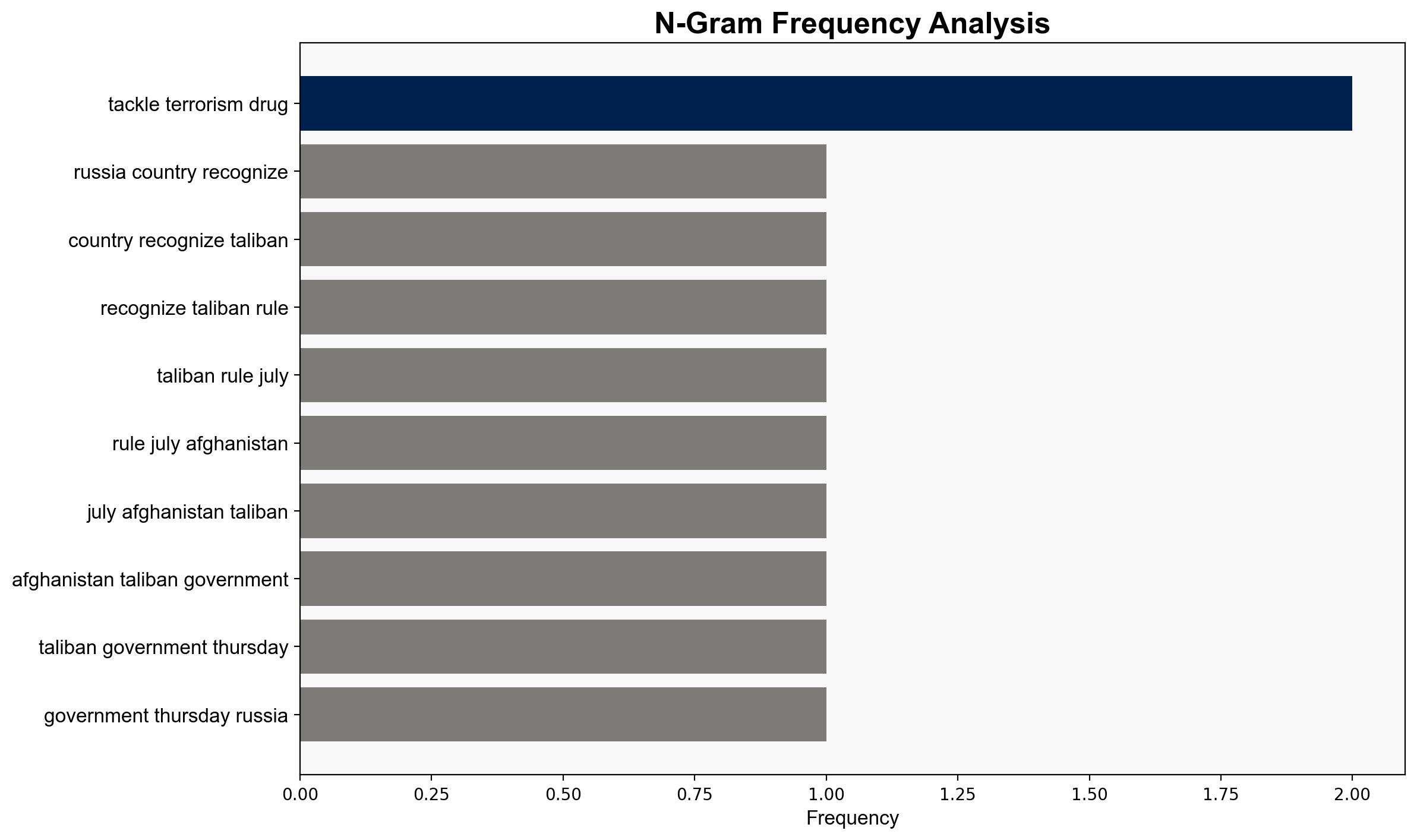Russia first country to recognize Taliban rule – DW (English)
Published on: 2025-07-04
Intelligence Report: Russia first country to recognize Taliban rule – DW (English)
1. BLUF (Bottom Line Up Front)
Russia has officially recognized the Taliban government in Afghanistan, marking a significant geopolitical shift. This move could enhance bilateral cooperation between Russia and Afghanistan, potentially influencing regional stability and international diplomatic dynamics. Key recommendations include monitoring Russia’s strategic interests in Afghanistan and assessing the broader implications for regional alliances and counter-terrorism efforts.
2. Detailed Analysis
The following structured analytic techniques have been applied to ensure methodological consistency:
Causal Layered Analysis (CLA)
At the surface level, Russia’s recognition of the Taliban is a diplomatic maneuver that may alter regional power dynamics. Systemically, this move could strengthen Russia’s influence in Central Asia and challenge Western diplomatic efforts. The worldview suggests a shift towards pragmatic alliances over ideological alignment. The underlying myth is Russia’s historical role as a stabilizing force in the region.
Cross-Impact Simulation
Russia’s recognition may prompt neighboring countries to reassess their diplomatic stances, potentially leading to a domino effect in regional alliances. Economic dependencies, particularly in energy and trade, could be leveraged to solidify Russia’s influence.
Scenario Generation
In a best-case scenario, Russia’s recognition leads to enhanced stability and economic growth in Afghanistan. In a worst-case scenario, it exacerbates regional tensions and undermines international counter-terrorism efforts. The most likely scenario involves gradual normalization of Taliban relations with other countries, driven by pragmatic considerations.
3. Implications and Strategic Risks
Russia’s move may embolden the Taliban, potentially leading to stricter enforcement of Islamic law and further human rights violations. This could trigger international condemnation and complicate diplomatic relations. Additionally, Russia’s involvement in Afghanistan may increase its exposure to regional conflicts and terrorism risks.
4. Recommendations and Outlook
- Monitor Russia’s diplomatic and economic engagements with Afghanistan to assess shifts in regional power dynamics.
- Enhance intelligence-sharing with regional allies to counter potential security threats stemming from increased Taliban legitimacy.
- Scenario-based projections: Best case – Russia facilitates regional stability; Worst case – Increased regional tensions; Most likely – Gradual normalization of Taliban relations.
5. Key Individuals and Entities
Amir Khan Muttaqi, Dmitry Zhirnov, Mariam Solaimankhil, Vladimir Putin, Mao Ning
6. Thematic Tags
national security threats, cybersecurity, counter-terrorism, regional focus




